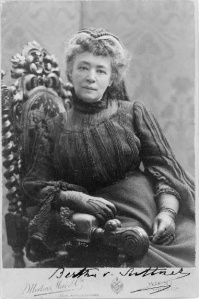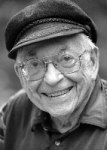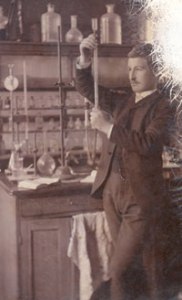Sunday, January 22, 2017
The Future Leadership Institute associated with De Kamers at Royal Palace at the Meir in Antwerp
The Belgian branch of The Future Leadership Institute has found a physical seat in Antwerp in the prestigious Royal Palace on the Meir. The Future Leadership Institute collaborates with De Kamers who resides in The Royal Palace on the Meir.
The Future Leadership Institute is being supported in Belgium by ao. Pauwels Sauzen, Muurtuin.be, Schelpen.be, and Traiteur Gevers.
Friday, January 20, 2017
Leadership quote Gert Van Mol elected 50 best leadership quotes worldwide
In a recent study about leadership quotes, a leadership quote by Gert Van Mol entered the rankings of the 50 most quoted leadership thoughts in the world. The quote by Gert Van Mol is ranked nr 49 out of 50. The quote by Van Mol comes with quotes by people like Roosevelt, Emerson, Patton, Aristotle, Drucker, Eisenhower, George Washington,
Gert Van Mol was quoted saying: "There is a leader in every manager, there is not a manager in every leader". Gert Van Mol used these words during a speech at London Business School in his capacity as founder of The Wall Street Journal Future Leadership Institute. In 2012 The Wall Street Journal Future Leadership Institute became independent operating under the name The Future Leadership Institute.
The 50 best quotes about leadership (by McCardell)
Gert Van Mol was quoted saying: "There is a leader in every manager, there is not a manager in every leader". Gert Van Mol used these words during a speech at London Business School in his capacity as founder of The Wall Street Journal Future Leadership Institute. In 2012 The Wall Street Journal Future Leadership Institute became independent operating under the name The Future Leadership Institute.
The 50 best quotes about leadership (by McCardell)
- "To handle yourself, use your head; to handle others, use your heart." -- Eleanor Roosevelt
- "Our chief want is someone who will inspire us to be what we know we could be." -- Ralph Waldo Emerson
- "The greatest leader is not necessarily the one who does the greatest things. He is the one that gets the people to do the greatest things." -- Ronald Reagan
- "Leadership is not about titles, positions, or flowcharts. It is about one life influencing another." -- John C. Maxwell
- "Don't tell people how to do things; tell them what to do and let them surprise you with their results." -- George S. Patton Jr.
- "Leadership and learning are indispensable to each other." -- John F. Kennedy
- "He who cannot be a good follower cannot be a good leader." -- Aristotle
- "Leaders must be close enough to relate to others but far enough ahead to motivate them." -- John C. Maxwell
- "I cannot trust a man to control others who cannot control himself." -- Robert E. Lee
- "Your first and foremost job as a leader is to take charge of your own energy and then help to orchestrate the energy of those around you." -- Peter F. Drucker
- "Management is doing things right; leadership is doing the right things." -- Peter F. Drucker
- "No great manager or leader ever fell from heaven; it's learned, not inherited." -- Tom Northup
- "Average leaders raise the bar on themselves; good leaders raise the bar for others; great leaders inspire others to raise their own bar." -- Orrin Woodward
- "The growth and development of people is the highest calling of leadership." -- Harvey S. Firestone
- "Too many kings can ruin an army." -- Homer
- "A good leader leads the people from above them. A great leader leads the people from within them." -- M.D. Arnold
- "Leadership is the art of getting someone else to do something you want done because he wants to do it." -- Dwight Eisenhower
- "Delegating work works, provided the one delegating works, too." -- Robert Half
- "The very essence of leadership is that you have to have vision. You can't blow an uncertain trumpet." -- Theodore M. Hesburgh
- "It is absolutely necessary... for me to have persons that can think for me as well as execute orders." -- George Washington
- "A leader takes people where they would never go on their own." -- Hans Finzel
- "If you can't swallow your pride, you can't lead. Even the highest mountain had animals that step on it." -- Jack Weatherford
- "The leadership team is the most important asset of the company and can be its worst." -- Med Jones
- "A CEO's performance is as good as the performance of his middle managers." -- Med Jones
- "Victory breeds victory. Leadership summons participation." -- Ellen Shaffer
- "A leader has to command confidence and consent." -- John Christopher
- "Good business leaders create a vision, articulate the vision, passionately own the vision, and relentlessly drive it to completion." -- Jack Welch
- "Leadership is a two-way street, loyalty up and loyalty down." -- Grace Murray Hopper
- "Stories are the single most powerful weapon in a leader's arsenal." -- Howard Gardner
- "The task of leadership is not to put greatness into humanity but to elicit it, for the greatness is already there." -- John Buchan
- "Leadership is the art of giving people a platform for spreading ideas that work." -- Seth Godin
- "It's not about you. It's about them." -- Clint Eastwood
- "Real leaders are ordinary people with extraordinary determinations." -- John Seaman Garns
- "Leadership is being the first egg in the omelet." -- Jarod Kintz
- "Leadership is a potent combination of strategy and character. But if you must be without one, be without the strategy." -- Norman Schwarzkopf
- "Successful leaders see the opportunities in every difficulty rather than the difficulty in every opportunity." -- Reed Markham
- "'Tis skill, not strength, that governs a ship." -- Thomas Fuller
- "Ninety percent of leadership is the ability to communicate something people want." -- Diane Feinstein
- "A noble leader answers not to the trumpet calls of self-promotion but to the hushed whispers of necessity." -- Mollie Marti
- "If you want people to to think, give them intent, not instruction." -- David Marquet
- "You accomplish exactly as much as the people who serve you decide you'll accomplish and nothing more." -- Orson Scott Card
- "To function efficiently, any group of people or employees must have faith in their leader." -- Capt. Bligh
- "A leader should demonstrate his thoughts and opinions through his actions, not through his words." -- Jack Weatherford
- "Servant leadership is an oxymoron. All true leadership is servanthood." -- Todd Stocker
- "Delegation is not a binary thing. There are shades of gray between a dictatorship and an anarchy." -- Jurgen Appelo
- "If you want to listen, don't talk. If you want to talk, listen first." -- Norbert Harms
- "Leadership is giving out far more than one expects in direct return. The rewards are intangible, yet priceless." -- T. Jay Taylor
- "A true leader doesn't lead its pack but gets followed by those who respect." -- Noa C. Kings
- "There is a leader in every manager; there is not a manager in every leader." -- Gert Van Mol
- "Humble leaders trust more easily because they realize that the world does not rest solely on their shoulders." -- Shandel Slaten
Labels:
Future Leadership Institute,
Gert Van Mol,
McCardell
Tuesday, November 15, 2016
Pauwels Sauzen supports The Future Leadership Institute
The Future Leadership Institute, formerly known as The Wall Street Journal Future Leadership Institute, became independent in 2012. The goal of The Future Leadership Institute is to bridge 'University', 'Industry' and 'Society'. The adagio is "Inquirere et Immutare", or "To Study and To Reform". Since 2012 circa 50 executives living and working in Europe, Middle East, Africa and Russia donate a certain amount of their time to help fulfill the goal of the Institue by bringing together studentleaders and C-Suit representatives around topices relevant to society.
Today Pauwels Sauzen (Pauwels Sauces) joined a group of companies supporting The Future Leadership Institute. Pauwels Sauzen produces high quality sauces and is considered a key sauces partner for Europe's leaders in retail, catering, export and co-packing.
Thursday, November 10, 2016
Lecture on the American Elections at Sint Jan Berchmanscollege
The Future Leadership Institute brings
together an expert explaining about the American election system,
followed by a representative of the Democrats and a representative of
the Republicans highlighting their respective viewpoints.
Speakers:
Explaining about the American election system: Elisabeth Bloxam, Commission for Educational Exchange between the U.S., Belgium and Luxembourg
Representative of the Democrats: Mr Larry Moffett
Representative of the Republicans: Mr Mike Kulbickas
Organising committee at Sint-Jan Berchmanscollege: Mrs. Elke Schoepen
Venue: Sint-Jan Berchmanscollege, Kasteellaan 18, 2390 Westmalle, Belgium
Audience: 180 students of the fifth grade, (17 y)
Date: Friday 28 October
Timing: 10.25 tot 12.05
Participation: this is a closed session
Speakers:
Explaining about the American election system: Elisabeth Bloxam, Commission for Educational Exchange between the U.S., Belgium and Luxembourg
Representative of the Democrats: Mr Larry Moffett
Representative of the Republicans: Mr Mike Kulbickas
Organising committee at Sint-Jan Berchmanscollege: Mrs. Elke Schoepen
Venue: Sint-Jan Berchmanscollege, Kasteellaan 18, 2390 Westmalle, Belgium
Audience: 180 students of the fifth grade, (17 y)
Date: Friday 28 October
Timing: 10.25 tot 12.05
Participation: this is a closed session
Wednesday, November 09, 2016
24 October 2016 lecture on the American Elections at POLITICO
24 October 2016
The Future Leadership Institute organized a lecture on the American Elections at the offices of POLITICO.
Date: Monday 24 october 2016
When: from 16 to 18h
Where: Politico Brussels, Rue de la Loi 62, 1040 Brussels, Belgium
Speaker: Matthew Kaminski, executive editor Politico European edition
Topic: In-depth analysis of the American Election System
Organizer: Gert Van Mol, The Future Leadership Institute
The Future Leadership Institute organized a lecture on the American Elections at the offices of POLITICO.
Date: Monday 24 october 2016
When: from 16 to 18h
Where: Politico Brussels, Rue de la Loi 62, 1040 Brussels, Belgium
Speaker: Matthew Kaminski, executive editor Politico European edition
Topic: In-depth analysis of the American Election System
Organizer: Gert Van Mol, The Future Leadership Institute
Sunday, September 11, 2016
15 september 2016 Informele Lezing "Ons Onderwijs"
Op 15 september 2016 komt Professor Wouter Duyck spreken over "Ons Onderwijs".
Organisatie: The Future Leadership Institute
De lezing gaat door in de gastenruimte van Wijnhandel Despert in Sint Job.
No-Show-Rule:
De conferenties van het Future Leadership Institute worden in Vlaanderen georganizeerd met behulp van oa. Traiteur Gevers, Pauwels Sauzen, Exclusief, Shoot & Hang, Exhem, Muurtuin.be en Schelpen.be
Organisatie: The Future Leadership Institute
De lezing gaat door in de gastenruimte van Wijnhandel Despert in Sint Job.
Wat zal U zoal leren op deze conferentie?
1. goed studeren maakt jou, en de maatschappij rijk
2. Vlaanderen is koploper wat betreft het halen van een hoger diploma in vgl met de ouders
3. slechts 6/10 leerkrachten in het secundair heeft het vereiste diploma
4. we kunnen een deel van de niet-geslaagden aan de universiteit voorspellen met 95% zekerheid
5. wat goed is voor zwakkere leerlingen is ook goed voor sterke leerlingen
6. migranten doen het in het Vlaams onderwijs zeer goed ten opzichte van het Europees gemiddelde
7. een investering in onderwijs bij kansarme kinderen haalt een rendement van 7% per jaar
8. een Waals kind van 16 jaar weet/kan evenveel als een Vlaams kind van 15 jaar.
9. ...
9. ...
Inkom:
- Studenten: vrij
- Leden van het Future Leadership Institute: gratis
- Particulieren; vrij met appreciatiefee. Dwz U betaalt achteraf wat U denkt dat de lezing waard was.
- Bedrijven (behalve onderwijsinstellingen): 65 Euro per stoel
Boekingen: info(at)fli.institute
- Studenten: vrij
- Leden van het Future Leadership Institute: gratis
- Particulieren; vrij met appreciatiefee. Dwz U betaalt achteraf wat U denkt dat de lezing waard was.
- Bedrijven (behalve onderwijsinstellingen): 65 Euro per stoel
Boekingen: info(at)fli.institute
No-Show-Rule:
Indien U een stoel boekt en U komt niet opdagen zonder verwittiging, dan bent U gehouden te voldoen aan onze "No-Show-Rule". Dat wil zeggen dat wij U mogen uitnodigen op een lunch in een brasserie naar onze keuze die door U betaald wordt.
Thursday, April 16, 2015
Impact of Salt on Performance for Endurance Athletes
More Salt Doesn’t Mean Better Performance For Endurance Athletes
as featured on the website of the 7r Future leadership institute
Article by Saint Louis University

SLU researcher Edward Weiss, Ph.D., and his wife, Sandy, are avid cyclists.
Credit: Saint Louis University
Credit: Saint Louis University
In a recent study, Saint Louis University researchers found that salt pill consumption neither hurt nor helped performance for endurance athletes. Edward Weiss, Ph.D., assistant professor of nutrition and dietetics at Saint Louis University, cast doubts on the popular idea that salt consumption can help endurance athletes during competition in the the Journal of Sports Science and Medicinepaper.
Conscious of recommendations to replace sodium losses due to sweat during exercise, some endurance athletes have taken that idea a step further. Athletes sometimes consume large quantities of salt or other electrolyte supplements containing sodium during training and competition under the theory that it could help improve performance. The sodium found in many sports beverages and foods is generally not of concern. However, the use of salt and electrolyte pills or powdered additives for drinks can result in excessive sodium intakes.
Some have hypothesized that the added salt would lead to more sweat, which in turn would offer benefits to performance. This idea is based on the principle of thermoregulation, the body’s processes that help to maintain its core temperature. Efficient thermoregulation is linked to better athletic performance. Sweat is one mechanism that the body uses to cool off when its core temperature becomes too high.

Edward Weiss, Ph.D., is an assistant professor of nutrition and dietetics at Saint Louis University.
Credit: Saint Louis University
Credit: Saint Louis University
To determine the effects of high-dose sodium supplementation on thermoregulation and related measures, 11 endurance athletes participated in a double-blind study in which they underwent two hours of endurance exercise at 60 percent heart rate reserve (the difference between maximum heart rate and resting heart rate) followed by an exercise performance test. The exercise resulted in more than two liters of water loss in the form of sweat. During one session, the athletes received 1800 mg of sodium supplementation and during the other, they received a placebo.
Weiss and fellow researchers found that sodium supplementation did not appear to impact thermoregulation.
The investigators calculated sweat rate, perceived exertion, heat stress, cardiovascular drift (increased heart rate after a period of exercise even when exertion remains constant), skin temperature and dehydration. None of the measures showed significant statistical difference between trials.
When these findings are considered together with the known health concerns associated with too much salt consumption, Weiss urges a conservative interpretation of guidelines calling for sodium replenishment for athletes.
“While moderate sodium consumption is perfectly reasonable and should be encouraged, high sodium intake is associated with health concerns, like hypertension,” Weiss said. “Many Americans already consume too much salt on a daily basis.”
“I recommend that athletes use caution with sodium supplementation, especially when daily intakes already exceeds the upper safe limit of 2300 mg/day for most Americans.”
Reprinted with permission of Saint Louis University
Sunday, April 12, 2015
Friday, December 12, 2014
The Battle Over Alfred Nobel’s Testament
Source: The 7R Future Leadership Institute (www.fli.institute)
On 2 January 1897, the will of Alfred Nobel, the deceased Swedish dynamite millionaire was widely published. The bulk of his great fortune was left to form a fund, from the annual income of which five prizes were to be distributed to those who, “during the preceding year, shall have conferred the greatest benefit upon mankind.” In equal amounts prize winners in physics. chemistry, medicine, literature and peace were to be named — “whether Scandinavian or not.”
On 2 January 1897, the will of Alfred Nobel, the deceased Swedish dynamite millionaire was widely published. The bulk of his great fortune was left to form a fund, from the annual income of which five prizes were to be distributed to those who, “during the preceding year, shall have conferred the greatest benefit upon mankind.” In equal amounts prize winners in physics. chemistry, medicine, literature and peace were to be named — “whether Scandinavian or not.”
No man of great wealth had done anything like this before, and the news came as a great surprise to the public, and no less to the disappointed Nobel family. To Nobel’s young assistant, Ragnar Sohlman, the will brought shock. Only after Nobel’s death did he and the Swedish engineer Rudolf Lilljequist learn that they were to be the executors.
Sohlman, a chemical engineer, who was then only twenty-seven years old, had worked in the United States at the Du Pont dynamite factory and was on the staff of the Swedish pavilion at the Chicago World’s Fair of 1893 when a telegram arrived from Alfred Nobel, whom he had never met, offering him the position as his personal assistant. In the next three years he more than lived up to his high recommendations, not only serving as Nobel’s valued assistant and coworker, but becoming a close friend, a relationship unusual for Nobel. Lillequist, busy with his own affairs, left most of the executor work to Sohlman, and no-one could have been better qualified.
The task proved to be Herculean. In the first place, the passage in the will about the prizes was legally defective. Nobel’s purpose was clear enough, and he had identified the awarding bodies: in Sweden two academies and the Karolinska medical institute and in Norway, then part of a monarchic union with Sweden, a committee to be elected by the parliament.
But the will named no legatee. There was no stipulation as to who or what was to manage the money. Nobel had had such unfortunate experiences with lawyers in defending his dynamite patents that rather than consulting one of these “niggling parasites,” as he called them, he drew up his will himself.
Moreover, Nobel had never asked any of the institutions named to administer the prizes if they were willing. Had only one refused, the will would have been invalid, which is what members of the Swedish branch of the family maintained.
Sohlman and Lilljequist themselves had no hesitation in hiring a lawyer to deal with all these complications. Fortunately, they picked Carl Lindhagen, a young jurist who was to have a distinguished career as lord mayor of Stockholm. With Lindhagen’s assistance, Sohlman now took major responsibility in the long struggle to see the will through the courts and to negotiate with the relatives and the prize-awarding bodies.
The first question was where the will was to be probated? Where was Nobel’s domicile? Victor Hugo had called him “Europe’s richest vagabond.” Born in Sweden, Nobel had spent most of his life abroad, longest in Paris, then moving to San Remo on the Italian Riviera, where he died on 10 December 1896. Since rigorous French judges would almost certainly throw such a will out of court, Lindhagen made the case for a Swedish domicile. Nobel was a Swedish citizen and had begun to spend more time there after purchasing the Bofors factory and nearby residence in 1894. He had written the will in Swedish, had it signed in the Swedish Club in Paris by two Swedish witnesses, and four of his prizes were to be administered by Swedish institutions.
But what to do with Nobel’s funds and securities, most of which were held in Paris banks and would be subject to excessive taxes even if the will was not probated there? Sohlman could not simply instruct the banks to make the transfer to Sweden, for such a major move would surely come to the notice of the French authorities. Moreover, the Nobel relatives in Sweden naturally wanted domicile approved for Paris and could get Nobel’s properties in France sequestered while the wrangling was continuing.
Hearing that two of them are coming to Paris to look into the matter, Sohlman goes into action. As executor he quietly withdraws the assets from the banks and takes them to the office of the Swedish consul general, who has agreed to help. Behind locked doors, unbeknownst to the Nobel relatives who are actually there in another room, Sohlman and an assistant package the securities in the many parcels necessitated by the insurer’s stipulation that the highest value for any one parcel cannot exceed a certain value.
Now they are ready to be taken to the finance office at the Gare de Nord to be sent abroad. In transporting such precious cargo, Sohlman takes no chances. Thieves may make a direct attack or arrange a collision with another vehicle. So in his horse drawn cab, both on the way from the bank to the consulate and from there to the Gare de Nord, Sohlman sits with Nobel’s millions, his revolver at the ready.
At the Gare de Nord he dispatches some of the securities to London to be sold, others directly to Stockholm. The total net worth of the estate is more than 31 million Swedish crowns, almost nine million dollars at the time. After everything arrives safely in Sweden. Lindhagen manages to have jurisdiction established in the Bofors district court.
A pressing problem is to get the award-granting institutions on board. The Norwegian parliament, regarding the responsibility as an honor, accepts with alacrity. But the Swedish bodies have reservations. Some members of the Swedish Academy think that reading books in foreign languages is none of their business, while in the Academy of Science there is sentiment that Nobel’s money should go for research in Swedish laboratories, not to foreign scientists. Acceptance of Nobel’s charge is finally made contingent upon approval of the will by all the relatives.
Fortunately for the executors, the Nobel family is divided. While the Swedish branch are disposed to contest the will, those living in Russia, headed by Nobel’s favorite nephew, Emanuel, want Alfred Nobel’s wishes to be respected. Emanuel tells Sohlman about the Russian concept that the executor is “the spokesman of the soul” of the testator.
The Swedish branch is supported by many conservative fellow countrymen, who call the will “unpatriotic” because the prizes were not reserved for Swedes and who fear that the Norwegians will use the peace prize to gain friends for their efforts toward independence.

Bertha von Suttner (born Kinsky) answers a want-ad in the Viennese newspaper Die Presse from Alfred Nobel [1833-1896] in 1876 to become secretary-housekeeper at his Paris residence. She remains in Paris less than two weeks before returning to Vienna and secretly marrying Arthur von Suttner. Though her personal contact with Alfred Nobel had been brief, she corresponded with him until his death in 1896, and it is believed that she was a major influence in his decision to include a peace prize among those prizes provided in his will. December 10, 1905 von Suttner is named to receive the fifth Nobel Peace Prize (thus becoming the first woman peace laureate).
Emanuel stands his ground, replying that he would not expose his family to future reproaches “for having appropriated funds which rightfully belonged to deserving scientists.”
Sohlman not only has to deal with the relatives and the Swedish institutions, but also with Nobel’s complicated finances and international business affairs. In the midst of all this, he is suddenly called up to do his military service. Since estate matters cannot be postponed, Sohlman is permitted to install himself and his accountant in a private building inside the army camp, where they attend to correspondence in the evening after the day’s drilling is done. A corporal bicycles every day with their letters to the nearest post office. Since telephones are few and far between, Sohlman pays to have one set up in his own quarters, which he keeps busy. When Recruit Sohlman finishes his service and departs, the army probably sighs with relief.
In the probate court attorney Lindhagen answers claims that the will is unfair to the relatives by producing evidence that Nobel believed large inheritances removed heirs from the incentive to work and that in his final will he reduced bequests to his relatives because they were prospering.
What about the fact that the will lacks specifications for implementation? Here Lindhagen shows conclusively that this was always the way Nobel worked, delegating full responsibility to those in whom he had confidence.
It is fortunate that Nobel was not too explicit. The two witnesses to the will testify that his intention was not to reward achievement, but to give recipients fuller opportunities for fruitful development. They report Nobel’s remarks that a prize should not be given to “a man of action, as he would be tempted to give up work. On the other hand, I would like to help dreamers, as they find it difficult to get on in life.”
Had Nobel written dreamers into the will, the institutions chosen to make the awards would surely have rejected the assignment altogether. Now they are free to formulate their own policies and methods of selection, and many of their awards will go to seniors for past achievements.
The very fact that Nobel’s testament is so loosely drawn makes it possible for Sohlman and Lindhagen to arrive at a final settlement with all the parties. On 29 June 1900, King Oscar himself approves the statutes of the Nobel Foundation, created to provide the missing legatee and to receive the designated assets from the executors. Now proud of Nobel’s prizes, at the first award ceremony in 1901 the king begins the tradition of handing out the prizes which has been continued by his royal successors. Sohlman, looking back after a half century in which he himself had a distinguished career, including ten years serving as managing director of the Nobel Foundation, concluded his story of the long struggle over the will with an understatement, “In the light of later experience, the final outcome must be deemed satisfactory.” Without the skill and dedication of the personal assistant Nobel hired unseen from across the Atlantic, there would have been no such happy ending. Where there was a will, legally defective as it was and “nonsensical” as it might have seemed, Ragnar Sohlman found the way.
 By Irwin Abrams
By Irwin AbramsOriginal title: The Struggle Over Alfred Nobel’s Testament
Irwin Abrams (1914-2010) was Distinguished University Professor Emeritus at Antioch University. He was regarded as one of the world’s leading authorities on the Nobel Peace Prize and the history of the international peace movement.
How 3 Orlov trotter stallions decided the faith of the Nobel Prizes
Most of the assets proved to be linked to Nobel’s holdings in the Russian oil company Baku Petroleum and a hundred or so ammunition and dynamite factories in Europe, North and South America, Australia and South Africa. Nobel also had substantial shareholdings in various mining companies, including gold mines, as well as revenues from his 355 international patents. In addition he owned a yacht – the first in the world with an aluminium keel – a stud farm for riding horses, and three valuable properties: the villa Mio Nido in San Remo, an apartment in Paris, and the villa Björkborn in Karlskoga (where he never took up residence).
A particular problem was that the bulk of Nobel’s securities and cash reserves were deposited in French banks in Paris, which might make it difficult for the estate to gain control of the assets without becoming subject to French inheritance tax.
To counter the Paris court’s finding of domicile, the executors – once all the securities and documents had arrived in Sweden – got the Karlskoga District Court to declare Björkborn to have been Nobel’s domicile. But this was just a stalemate for the time being with two courts each claiming the right to probate the will. But a stalemate was not enough. They needed Paris to give up its claim to having any jurisdiction over the probate.
The French authorities attempted at a certain point to get the money back since they considered Alfred’s home to be in Paris. A French lawyer, working for Sohlman, solved this problem: He found a paragraph in the French law that stated ‘’a man’s home is where he has his horses’’…

Nobel had 3 Orlov trotter stallions living in his villa Björkborn in Karlskoga. Reason for the French government to accept his domicile was not in France but in Sweden.
The critical victory came when Paris courts actually accepted that Alfred Nobel lived where his horses did – even though he did not- as Nobel kept 3 Orlov trotter stallions at his villa Björkborn in Karlskoga, Sweden.
It was now that Karlskoga and Björkborn Manor were to play an important role in Nobel’s Will. Much importance was placed upon the question of where Alfred Nobel had legally had his home. At the time of his death, he still owned his grand apartment in Paris plus a huge house in San Remo, Italy. Which property could actually be called his home? In the end, the courts decided that his legal home was in Karlskoga. Traditionally, it is said that this ruling was based upon the fact that Alfred’s three much-loved Russian Orlov horses were stabled in Karlskoga. In French law, a person’s home was where his or her horses were stabled. As a direct result of this ruling in the French courts, the execution of Alfred’s Will became subject to Swedish law. Had Alfred’s Will been subject to French law it is doubtful it would have met the strict, formal requirements necessary for it to be executed under France’s legal system.
It was now that Karlskoga and Björkborn Manor were to play an important role in Nobel’s Will. Much importance was placed upon the question of where Alfred Nobel had legally had his home. At the time of his death, he still owned his grand apartment in Paris plus a huge house in San Remo, Italy. Which property could actually be called his home? In the end, the courts decided that his legal home was in Karlskoga. Traditionally, it is said that this ruling was based upon the fact that Alfred’s three much-loved Russian Orlov horses were stabled in Karlskoga. In French law, a person’s home was where his or her horses were stabled. As a direct result of this ruling in the French courts, the execution of Alfred’s Will became subject to Swedish law. Had Alfred’s Will been subject to French law it is doubtful it would have met the strict, formal requirements necessary for it to be executed under France’s legal system.
Whether Sohlman’s moving of the securities to Sweden was tax evasion was probably moot once the French courts dropped their claim that Nobel was domiciled in Paris. But if the Russian horses had not come to Björkborn there would probably be no Nobel prizes today.
Source: The k2p blog
Monday, November 10, 2014
From The 7R Future Leadership Institute: Cyborg Cockroaches May Be The Search-And-Rescue Teams Of The Future.
here.
Sunday, August 31, 2014
Leadership Lessons from Jean-Claude Biver, CEO Hublot
 |
| Jean-Claude Biver, CEO Hublot |
– ‘Love’ gives meaning to life.
– Leadership is all about sharing and knowing how to share.
– Sharing knowledge, doubts, successes, even failures, is key to “what makes you rich.”
– People who don’t share are dangerous.
– Biver follows the adagio of Albert Einstein who said that creativity and innovation are more important than knowledge.
– A leader should show he has doubts. Because doubts allow us to rethink what we do.
– Failure is the motor of success.
– Each failure brings you closer to success.
– Respect for yourself and others is also key to success.
– Never mistreat your suppliers.
– Respect means promptly answering your emails, being constantly in a state of responsiveness.
– Hublot never gives watches for free to celebrities, because they cannot cherish what they have not chosen. They must buy it at full price, then they’ll love it.
– If you cannot forgive mistakes, you should not be the boss of a team.
– There are so many mistakes that can be made, so make as many as possible, as soon as possible, but never make them twice.
– When employing people, always look for failures in their CV, the more the better.
– “I will be the master of my cheese until the last piece.”
– “You measure your success by two elements: the numbers of fake copies and how many people are jealous of your industry.”
– Life has only one goal, to leave a trace.
– One should live to leave two traces. The trace of love and the trace in your occupation or business. The one who is able to leave a trace of love has lived a life that is 99 % successful. If one is able to leave a trace in his career or business or in whatever one did, life was a 100 % success.
– Always try to be first, be different and be unique.
– You only desire what you cannot get. People want exclusivity, so you must always keep the customer hungry and frustrated.
– Keep the customer unsatisfied!
– SHARING. FORGIVING. RESPECTING. These are the three values that guide how Hublot conducts itself as a company.
– The world is not static and a brand has to constantly adapt its concepts, products and DNA to the changes.
– I always try to adapt and forget about my own culture. I never meet other people with an imperialist or colonialist approach where you have the feeling that the others have to understand and adapt your own culture.
– I learned that you have to be open minded, that you have to be prepared to share, to listen, to learn, to understand and finally to respect. That is the only way for me to integrate yourself in our world. It is even more than that: it’s the rule of planet earth; and whoever cannot understand and follow this rule is condemned to fail.
More on Jean-Claude Biver, go to www.fli.institute
Tuesday, August 26, 2014
Monday, August 25, 2014
UNIZO President Karel Van Eetvelt reveals what drives him to lead his organization
Een zure/dure les voor ondernemers
Karel Van Eetvelt | De kijk van Karel
“Mama, gaat die meneer dan naar onze televisie kijken?”, vragen mijn kinderen bedroefd nadat de deurwaarder onze beeldbuis op de inbeslagnamelijst zette. Een faillissement kom je te boven, maar een gebroken moederhart heelt verschrikkelijk moeilijk.
Het raakt me telkens opnieuw. Ondernemers die me hun verhaal delen. Zoals deze moeder die met haar man jaren geleden de stap durfde wagen naar een eigen zaak. Ze stoppen hun eigen centen en vooral ook hun hart en ziel in het project waarin ze geloven. Het gaat een tijdje goed, maar als bedrijf waar alles draait om persoonlijke contacten, feilloze service en maatwerk is het moeilijk opboksen tegen de onpersoonlijke, prijsdrukkers of alternatieven op het internet.
Tot op een dag dan het onvermijdelijke volgt. Het koppel beslist om de boeken neer te leggen. Een zwarte dag, een droom die aan diggelen valt. Na de emotionele klop, volgt de financiële. Tegemoet komen aan de schuldeisers. Toestellen, materiaal, producten, alles wat met het bedrijf te maken heeft stuk voor stuk verkopen. Maar het ergste moest nog komen. Plots bleken ook de koelkast, wasmachine en televisie volgens de beslagrechter tot het bedrijf te behoren. Als het op belastingen of regeltjes aankomt, dan maakt de wetgever met plezier een onderscheid tussen de persoon en de onderneming. Twee keer langs de kassa passeren, is meer rendabel, weet u. Maar bij een faillissement valt dat onderscheid blijkbaar volledig weg. Alles deed het koppel om hun privé-eigendommen te vrijwaren van inbeslagname. Tevergeefs.
Het koppel leerde een harde les voor zichzelf en voor alle andere ondernemers. Aan, boven of onder je zaak wonen, is een risico. Privébordjes of niet aan de deuren, de deuren gaan open. Wat er te zien is, maakt deel uit van de onderneming. Als ondernemer zet je de maatschappelijke zetel dus maar beter niet op je thuisadres. Hou ook alle facturen nauwgezet bij. Een Visa-uittreksel vermeldt het bedrag van de aankoop, maar niet wat je hebt gekocht. Vraag dus maar bij elke aankoop een bewijs van wat je hebt gekocht. Betaal je een kinderzeteltje met cash, vraag dan een getailleerd betalingsbewijs. Leen je meubels van je ouders, dan leg je dit maar beter vast in een officieel contract. Alle privébezittingen moet je kunnen bewijzen. Alsof je de wasmachine voor professionele doeleinden gebruikt. Waar zijn we mee bezig?
Weet u trouwens wat het grappige is aan dit verhaal, zij het dan zeer cynisch? Het koppel heeft de curator nu een voorstel gedaan om al hun privéspullen – die ze dus al eens betaald hadden – terug te kopen. Ze leven op dit moment op hoop dat de curator met hun voorstel akkoord gaat. Zodat ze opnieuw hun was kunnen doen, kunnen zitten in hun eigen zetel, hun kinderen net als hun vriendjes naar televisie kunnen kijken…
De verhalen raken me niet alleen, ik word er echt kwaad over. Kwaad omdat zoiets mogelijk is. Omdat mensen die al hun spaarcenten in een bedrijf stopten en bovendien jarenlang mensen een job gaven niet alleen alles kwijt zijn, maar zich ook nog eens over zulke zaken moeten bekommeren. Omdat politici en de maatschappij nog altijd te weinig respect tonen voor wie onderneemt. Omdat gefailleerden in ons land nog te veel beschouwd worden als mislukkelingen en ze quasi in alles ontmoedigd of belemmerd worden om opnieuw te beginnen. Ik word er kwaad over, maar de verhalen motiveren me alleen nog maar meer om te blijven ijveren voor een beter ondernemersklimaat, voor meer respect.
(verschenen in De Standaard op 25 augustus 2014)
Saturday, August 16, 2014
Subscribe to:
Comments (Atom)
































